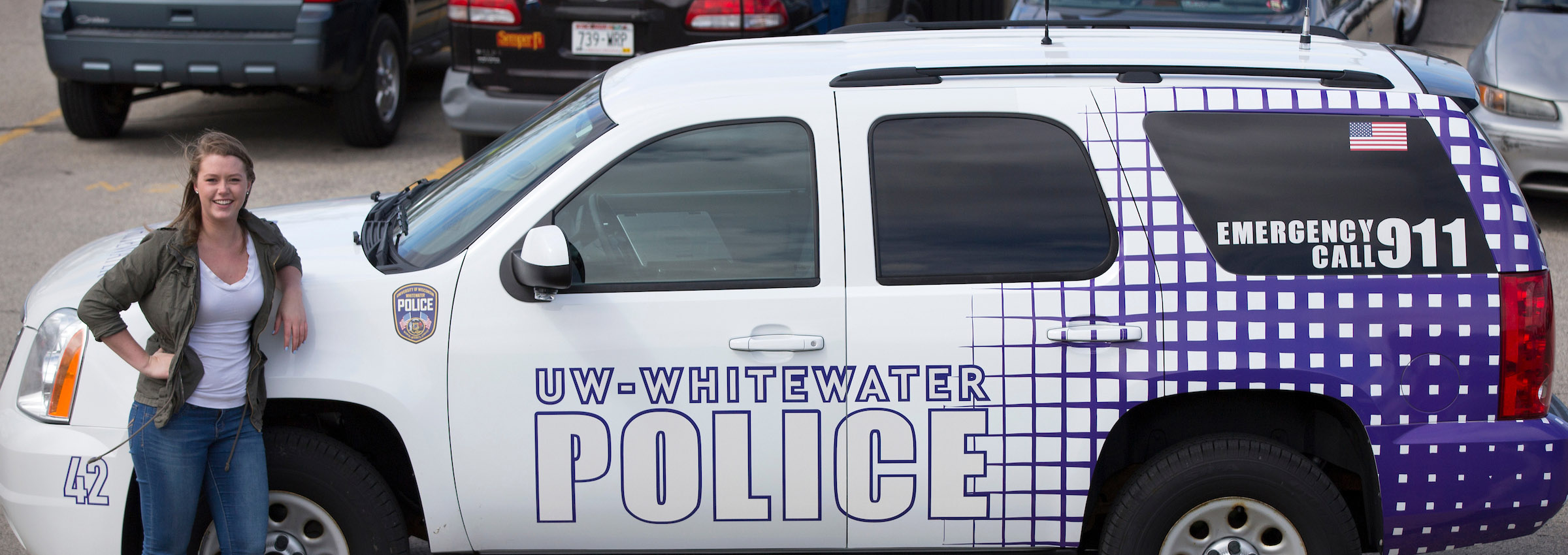Training and Programs
UW‐Whitewater provides information to students and employees about campus security procedures and practices, encourages them to be responsible for their own security and the security of others, and informs them about the prevention of crime through regular programs and literature distribution. Programming is conducted on an “as requested” basis and most classes are normally scheduled 1‐2 times per semester.
University Police staff conduct numerous programs throughout the academic year concerning various crime prevention topics such as theft prevention, identity theft, internet scams, drug and narcotics, and “date rape” drugs. The University Police will tailor programming to the specific needs of the requestor and are not confined to the listed topics. Scheduled programs are advertised on posters, the UWW Weekly Newsletter, local papers and the my.uww.edu website. For scheduling, designing, or information on programming call the University Police at 262‐472‐4660 or email police@uww.edu.
A list of these programs can be found below:
- Sexual Assault Awareness
- Alcohol Awareness
- Drug awareness
- Traffic Safety-OWI, seat belt
- Basic Crime Prevention
- Spring Break and Travel Safety
- Working with the Police Department
- Id theft and computer website safety
- New Student Seminar
- Child safety with Children's Center
- UW Whitewater Police-Who are we
UW-Whitewater currently has 51 Automated External Defibrillator’s (AED) units located throughout campus. The AED is an emergency response device that is used to provide care for victims of sudden cardiac arrest. The AED analyzes the hearts electrical system, and if necessary, will prompt the responder to deliver a shock to the victim. Each minute of delay in use of an AED on a victim of sudden cardiac arrest decreases the victim's chances of survival by approximately 10%.
American Heart Association AED training sessions are offered through University Police, at no cost to any campus faculty or staff member, including student employees.
University Police can attest to CPR being an effective lifesaving skill. In January 2015 Two UWWPD officers utilized their skills and training to perform CPR and use the AED (Automatic External Defibrillator) on an individual. When Officers responded the individual had no pulse and was not breathing, and with the use of CPR and the AED the individual regained a pulse and was able to breathe on their own.
Training
Initial and recertification sessions are 3 hours long. The American Heart Association recommends training every 2 years. If maintaining current CPR certification is an official job requirement, contained within an employee's official position description, employees must successfully complete training every two years.
This training is voluntary and is not a requirement of the University of Wisconsin-Whitewater. A trained volunteer is not required to respond to an emergency. The Good Samaritan provision of Wisconsin Statute 895.48(1) provides primary liability protection for volunteers.
Adult CPR/AED training teaches basic Adult CPR and the use of the AED. Other classes available in addition to Adult CPR/AED are child and infant CPR, First Aid, and Emergency Care Kit training.
Sign up for classes at my.uww.edu/signup or email cpr@uww.edu for any questions.

